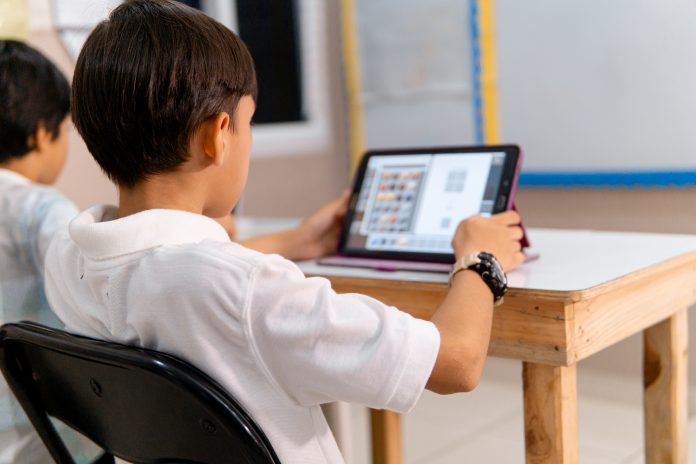A classroom‑based mental health initiative, myHappymind, prevented 936 referrals to child and adolescent mental health services (CAMHS) and 1,240 to mental health support teams in one local authority over six months
A pioneering in‑school mental health education programme has significantly alleviated pressures on children’s services by preventing more than 900 referrals to specialist mental health services and over 1,200 to school‑based support teams in just six months.
Known as myHappymind, the initiative utilises digital lessons, an app for parents and carers, and wellbeing modules for staff to equip schools with a whole-school approach to mental health, aligning with the ambitions of the NHS 10-Year Plan to expand preventive support across England’s education settings.
myHappymind supports children and teachers
myHappymind features content designed for children, which is taught in class by teachers using a digital platform. This content is also available for parents and carers to further support children at home. Additionally, myHappymind offers a wellbeing course for staff.
Schools using this tool are seeing fewer children being referred to SENCOs and mental health support teams in schools, with fewer needing referrals to CAHMS.
“It has provided a whole school approach for the first time and gives the whole school community a joint approach to mental health,” the headteacher of Hepworth Junior and Infant School reflects.
“It feels like we are doing something positive and forward-thinking rather than applying sticking plasters when children are at a crisis point.”
New data from headteachers of 31 schools out of the 128 currently using myHappymind in West Yorkshire, collected over six months, found that the programme prevented 2,100 SENCO referrals, 1,240 MHST referrals, and 936 CAHMS referrals.
“For SEND children, myHappymind has supported them to understand their emotions and feelings and how best to manage these,” reports a class teacher at Mount Pleasant Primary School in Kirklees.
“This has meant that we have not had to make as many referrals as we might have done without myHappymind.”
Improving pupils’ attendance, exclusion rates and creating inclusive environments
Schools have also reported striking new figures on behaviour:
- Prevented 512 exclusions, demonstrating significant improvements in behaviour and self-regulation.
- Resolved 1,068 Child Protection Online Monitoring System (CPOMS) incidents, helped by the institutional knowledge provided by myHappymind, demonstrating its role in supporting schools in managing safeguarding, wellbeing and pastoral issues.
- Positively contributed to improving the attendance of 1,440 children, particularly those experiencing emotionally based school avoidance.
- It enabled schools to become more inclusive environments, particularly for children with special educational needs.
Return on investment figures vary across locations, but the average is approximately 30 times when all these factors are considered. The programme costs significantly less than delivering mental health services through the NHS. Direct costs for myHappymind are paid by the individual schools, or funding is available.
“The programme provides a curriculum for teachers that’s really engaging and exciting and tailored to kids’ needs, which makes it easy to deliver for staff who often aren’t trained in health services or mental health,” explains Steve Tatham, programme lead (Starting Well, Mental Health and Planned Care) at Cheshire and Merseyside Integrated Care Board.
“It has been really well adopted by schools in Warrington and the feedback has been overwhelmingly positive, which has been great, so we have entered into an arrangement with the schools where we joint fund with them, so it is a partnership between ourselves as an ICB and system with the schools. That has led to a conversation around secondary schools that are equally keen to have something to support their young people, which we are now piloting.”
Jane Case, assistant director of Mental Health Strategic Commissioning and CYP Programme Manager for Bury at NHS Greater Manchester ICB: “I looked at a range of programmes, but the evidence base for myHappymind really stood out to me. My background as a learner mentor in schools also gave me some insight – having to make specific individual interventions and what that involved, which led me to consider the potential benefits of a whole-school approach and what that might look like. From a commissioning perspective, I then moved forward to discuss the programme in more detail with Laura and then went away and found the money.
What has been particularly inspirational has been the feedback from children and young people and their families and the staff. From teachers around how it’s changed the culture and from headteachers about how its reduced the need for external services – how they are able to contain and support more children on their own. As a commissioner it has been very empowering having that evidence to take forward.”











